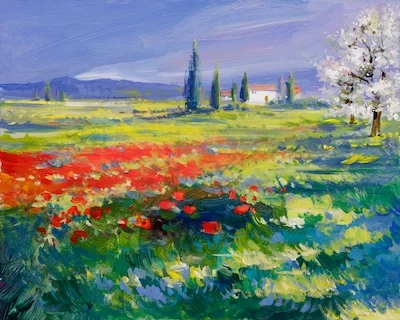States of Collapse
We are living through dystopian times that once might have sounded like something from science fiction.

Jude Griebel, "Flight Path," 2020
wood, adhesives and acrylic (photo by Blaine Campbell)
Artists often play the role of archivists, especially in the lead-up to and aftermath of disasters. But, sometimes, the disaster itself is the subject of their work.
At the online opening for States of Collapse, on view at the Dunlop Art Gallery in Regina until April 9, the exhibition’s four curators cited post-apocalyptic science fiction as their inspiration. Although the exhibition was originally developed in 2019, before the global pandemic, the digital opening was a reminder that we are living through what once would have sounded like something from science fiction.
Comprised of works produced both before and during the COVID-19 crisis, the exhibition presents an open-ended and devastating list of humanity’s catastrophic realities, including pollution, climate change, unsustainable resource extraction, natural disasters, cultural genocide and political uprisings, amidst other boundlessly theatrical dystopian themes.

Geoffrey Pugen, "Diefenbunker," 2020
archival pigment print (photo courtesy of MKG127)
Many of the artists speak less explicitly about fears for the future, and instead reintroduce and rearrange aesthetic elements of inherited cultural anxiety. For instance, in Toronto-based artist Geoffrey Pugen’s photograph Diefenbunker, a solitary deer is trapped in a nuclear shelter from the Cold War era. As I gaze, wishing someone would release it, a non-sensical worry creeps in: What awaits the animal outside those fortified doors? Even though the bunker is a relic from the past, the image reminds us of the discordance between the natural world and human-wrought disaster.
Often our anxieties prey on a sense of uncertainty, and, for this reason, the unknown and the uncanny serve as important story-telling devices across States of Collapse. The term “doomscrolling” comes to mind, even though a public gallery is not the usual setting for this activity, which refers to routinely consuming real-world tragedies online with a sense of detachment. Viewing one work after another in the show, each with its own expansive narrative of planetary or social collapse, one can’t help but feel a sense of overarching dread that blurs the line between potential realities and artistic interpretations.

Rolande Souliere, “Frequent Stopping VI: Covid-19,” 2020
photographic print on archival Kodak Endura metallic paper (courtesy of the artist)
At the opening, Stacey Fayant, one of the exhibition’s curators, shared insights into her relationship with science fiction, saying she likes post-apocalyptic stories because, as an Indigenous woman, she is forced to adapt to survive in a post-apocalyptic state. Echoes of this theme of survival in the face of cultural oppression are expressed in works by Indigenous artists Ruth Cuthand, Naomi Bebo and Andrea Carlson.
Each work in States of Collapse is rich with imagined possibilities. As a result, the tone can shift drastically from one piece to the next. A work like Alberta artist Jude Griebel’s Off-Shore inserts a playful counterpoint to the doomsday dialogue. Here, a sea creature rises from pollutant detritus, gangly and bizarre, but not terrifying. We can only hope that the collapse of oppressive systems reveals new ways of moving forward. ■
States of Collapse, with artists Christina Battle, Naomi Bebo, Andrea Carlson, Ruth Cuthand, Nicole Dextras, Jude Griebel, Jill Ho-You, Rachelle Viader Knowles, David Opdyke, Geoffrey Pugen, Rolande Souliere, Mkrtich Tonoyan, Jeff Wizniak, Pinar Yoldas and Sylvia Ziemann, at the Dunlop Art Gallery from Jan. 30 to April 9, 2021. Curated by Amber Christensen, Stacey Fayant, Tomas Jonsson and Wendy Peart.
PS: Worried you missed something? See previous Galleries West stories here or sign up for our free biweekly newsletter.

Dunlop Art Gallery
2311 12 Ave (PO Box 2311), Regina, Saskatchewan S4P 3Z5
please enable javascript to view
Mon to Thurs 9:30 am - 9 pm; Fri 9:30 am - 6 pm; Sat 9:30 am - 5 pm; Sun noon - 5 pm
